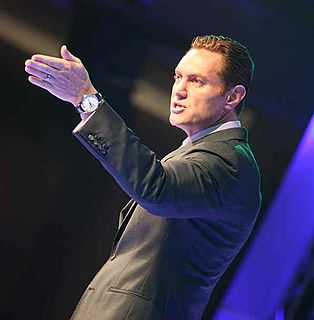A Quote by Samuel Beckett
Life is habit. Or rather life is a succession of habits.
Related Quotes
Habit is habit and not to be flung out of the window by any man, but coaxed downstairs a step at a time. You cannot eliminate habits that no longer serve you. You can only replace them with new habits that support your goals. Moment by moment, you need to live with awareness and structure the habits that you include or exclude in your days.
The other producer of old age is habit: the deathly process of doing the same thing in the same way at the same hour day after day, first from carelessness, then from inclination, at last from cowardice or inertia. Luckily the inconsequent life is not the only alternative; for caprice is as ruinous as routine. Habit is necessary; it is the habit of having habits, of turning a trail into a rut, that must be incessantly fought against if one is to remain alive.
Habit allows us to go from 'before' to 'after,' to make life easier and better. Habit is notorious - and rightly so - for its ability to direct our actions, even against our will; but by mindfully shaping our habits, we can harness the power of mindlessness as a sweeping force for serenity, energy, and growth.
A keystone habit leads to other positive habits and disciplines. These positive traits start a chain reaction that produces other positive outcomes. The presence of these important habits help you become more faithful in other areas of your life. On the other hand, the absence of these key disciplines can impact you negatively.
Centres, or centre-pieces of wood, are put by builders under an arch of stone while it is in the process of construction till the keystone is put in. Just such is the use Satan makes of pleasures to construct evil habits upon; the pleasure lasts till the habit is fully formed; but that done the habit may stand eternal. The pleasures are sent for firewood, and the hell begins in this life.
What we know from lab studies is that it's never too late to break a habit. Habits are malleable throughout your entire life. But we also know that the best way to change a habit is to understand its structure - that once you tell people about the cue and the reward and you force them to recognize what those factors are in a behavior, it becomes much, much easier to change.
Your success in life and work will be determined by the kinds of habits that you develop over time. The habit of setting priorities, overcoming procrastination, and getting on with your most important task is a mental and physical skill. As such, this habit is learnable through practice and repetition, over and over again, until it locks into your subsconscious mind and becomes a permanent part of your behaviour.







































